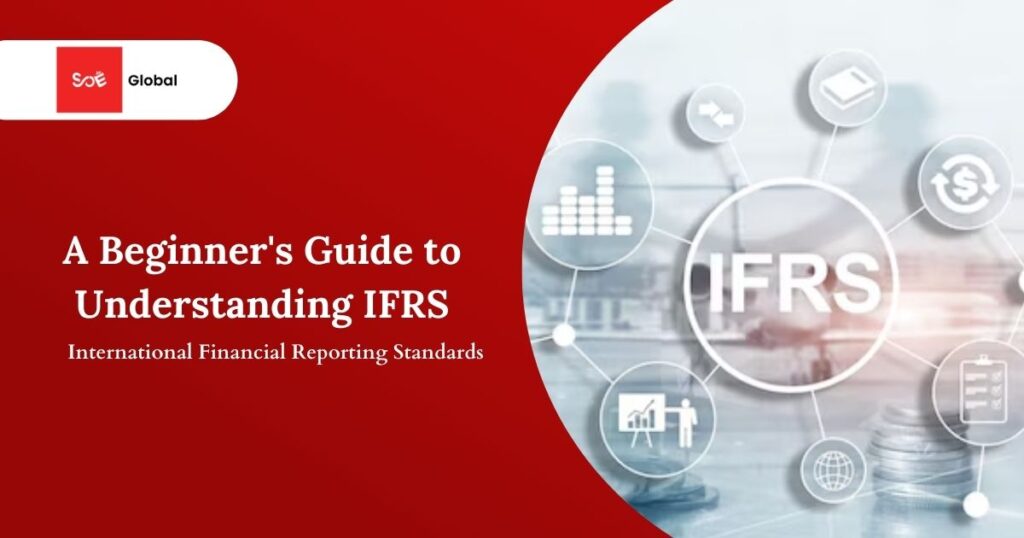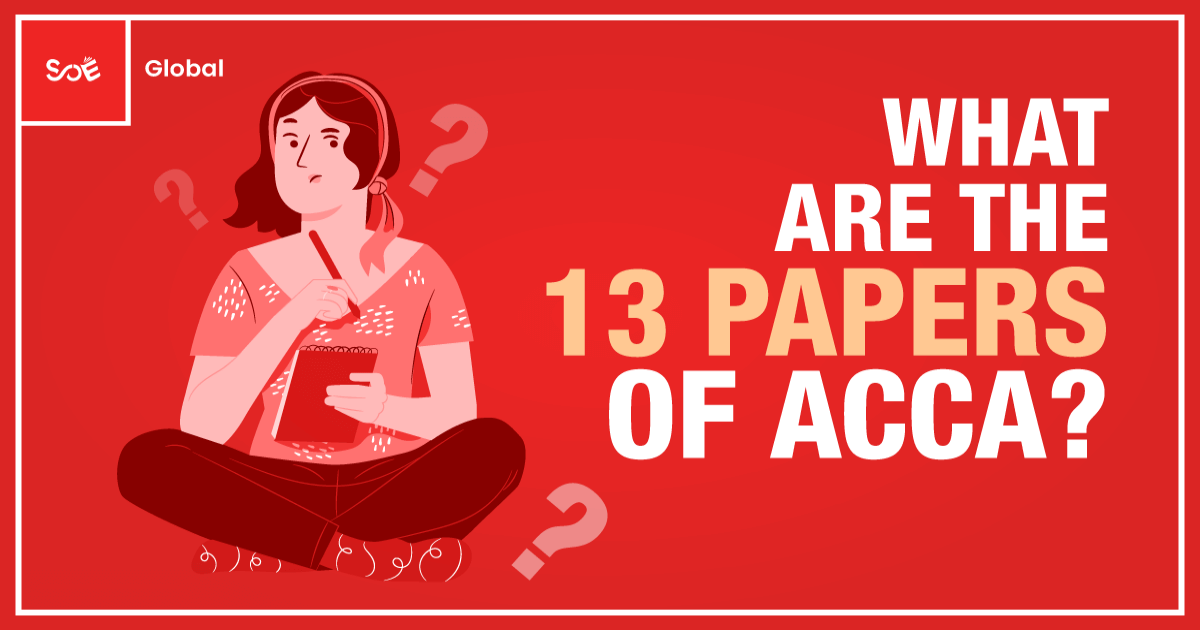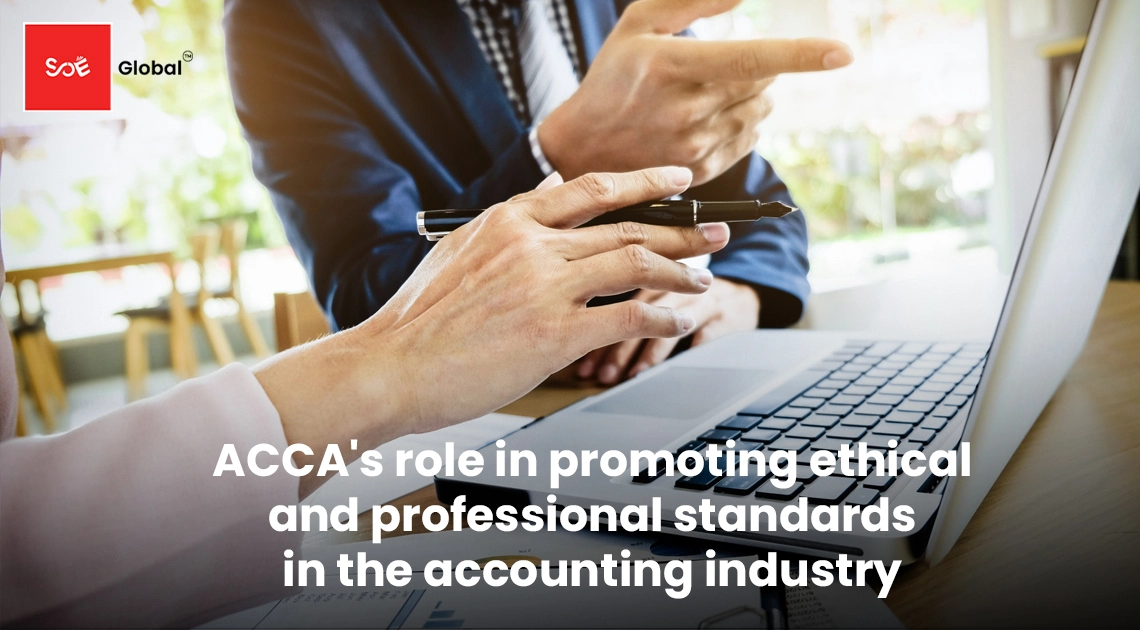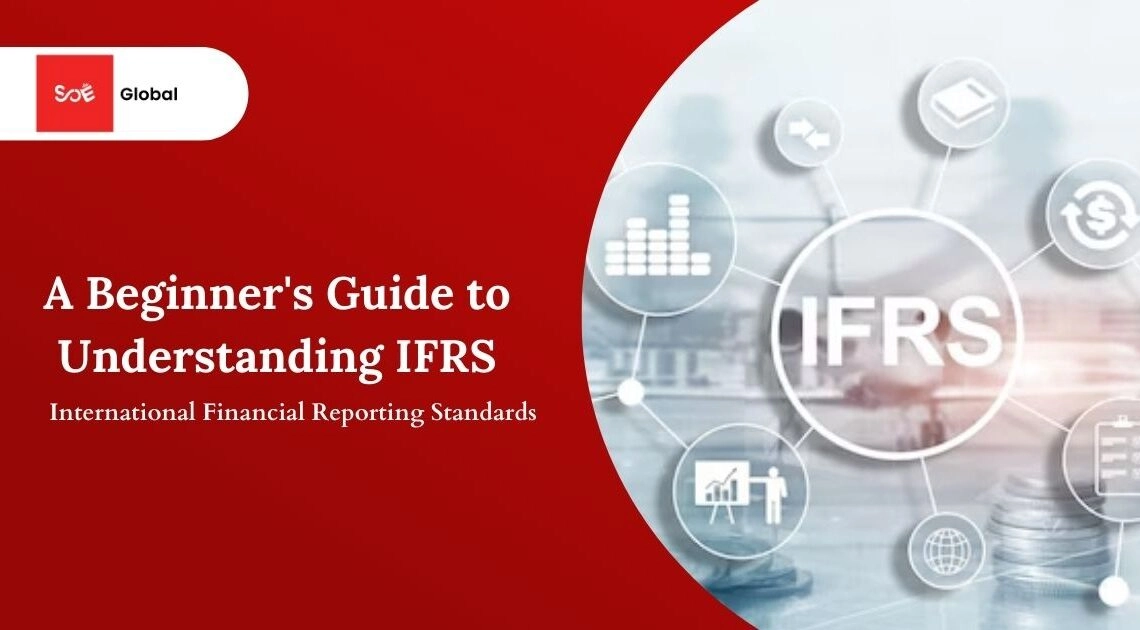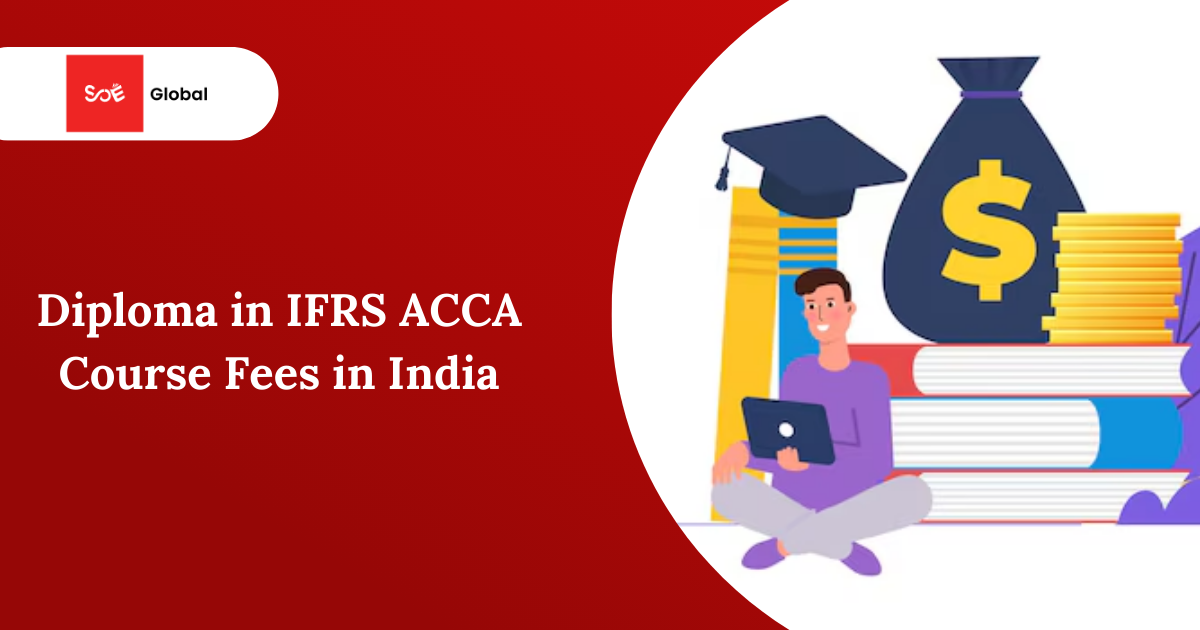Have you ever wondered why financial statements from different countries can look so vastly different? The answer is in accounting standards. While few of the countries have their own set of rules, most follow the “International Financial Reporting Standards (IFRS)”. This beginner’s guide to IFRS will help you to understand important aspects of the financial world, the language of global business, and decide if you want to pursue it further!
What is it IFRS?
Consider IFRS to be a set of guidelines for preparing financial statements. The International Accounting Standards Board (IASB) developed IFRS with the intention of giving businesses a clear and uniform means of reporting their financial performance. Investors, bankers, and other stakeholders can compare organisations internationally thanks to this uniform method of operation. Because of this, SOE Global offers it as one of our foundational courses to ensure that aspiring financiers are informed and ready to join the market!
Have A Query About ACCA, Book a Free Consultation Now!
What Makes IFRS Relevant?
Businesses are working across international borders more and more. With the help of IFRS, they can report their financial health to anyone, anywhere in the world, who is familiar with the standards in today’s globalised economy.
This transparency offers numerous benefits:
- Investors: It helps them to easily compare companies from different countries and make informed decisions.
- Lenders: It helps them assess risk more accurately when loaning to international companies.
- Companies: It helps them access capital markets more easily.
- Regulators: It also helps them to ensure a level playing field for businesses operating in their jurisdictions.
Who Uses IFRS?
Over 140 countries have adopted IFRS either fully or with some modifications. This includes major economies like the Commonwealth countries, European Union, Japan, India, and many others. SOE Global is committed to helping individuals prepare and excel in IFRS, thus widening their career prospects without restrictions.
Key Principles of IFRS
While IFRS is a set of standards, some core principles make-up the entire system:
- Accrual Accounting: Revenue and expenses are recognized when they are earned or incurred, not necessarily when cash is received or paid.
- Going Concern: The assumption that the company will continue operating in the foreseeable future.
- Fair Value: Assets and liabilities are reported at their current market value, not necessarily their historical cost.
- Materiality: Only information that has a significant impact on the financial statements needs to be disclosed.
Benefits of Learning IFRS
The Beginners guide to IFRS and understanding IFRS can open doors to exciting career opportunities:
- Increased Job Prospects: Most multinational companies look for professionals with IFRS expertise.
- Enhanced Global Understanding: Analyse financial statements from a wider range of companies across borders.
- Improved Decision-Making: Make more informed business and investment decisions.
Certification of IFRS or Diploma of IFRS?
Check what will suit you best!
Here’s a breakdown of the key differences between an IFRS Certification course and a Diploma in IFRS both of which is offered by SOE Global:
Level of Knowledge:
- Certification: Provides a solid foundation in IFRS principles. It’s designed to give you a basic understanding of how IFRS works.
- Diploma: Offers a more in-depth understanding of IFRS. You’ll get into complex accounting scenarios and gain a deeper understanding of the standards.
- Eligibility:
- Certification: Often has no strict eligibility requirements. You might need to be above 18 and have some basic accounting knowledge.
- Diploma: It has an entry criteria, This includes a relevant degree, experience in finance (at least 2-3 years), or certifications like ACCA Affiliate.
Don’t worry if you aren’t eligible, SOE Global also helps you prepare to be eligible to take up IFRS!
Assessment:
- Certification: It involves a single exam, often multiple-choice based. You might have unlimited attempts.
- Diploma: It Involves a more rigorous assessment process. It could be a two-part exam with multiple-choice and written sections. The number of attempts might be limited (around 3).
Learning Style and Time Commitment:
- Certification: Generally shorter and more flexible. You can study at your own pace and the material might be less demanding.
- Diploma: Requires a greater time commitment. The coursework is more intensive, and you’ll need to dedicate more effort to studying.
- Benefits:
- Certification: Ideal for those who want a quick way to gain basic IFRS knowledge and enhance their resume. It can be useful for professionals in various fields, not just accounting.
- Diploma: More valued by recruiters, especially for advanced accounting or international finance roles. The in-depth knowledge gained can open doors to better career opportunities.
Ultimately, the best choice depends on your career goals and existing knowledge.
If you’re new to IFRS and want a starting point, an IFRS Certification might be sufficient.If you aim for a specialisation in IFRS accounting or international finance, a Diploma in IFRS would be a stronger choice.
IFRS Beginners Guide:
IFRS can seem complex for beginners. That’s why at SOE Global, we aim to make it more understandable and less intimidating. Before you choose to enrol, we consult with you to understand your needs, providing a detailed explanation of the course offerings, syllabus, and curriculum. Even after enrolling, we offer continuous support every step of the way, including complete assistance with exam preparation and placement opportunities.
SOE Global provides BBP publisher books, which are amazing resources for exam preparation, along with recordings and assistance through dedicated WhatsApp groups. Remember, learning IFRS is an investment in your future. With dedication and the right support, you can step into the world of global financial opportunities.
In Conclusion
Understanding IFRS is about gaining a deeper insight into the global financial world and isn’t just about meeting regulations. Whether you’re a budding accountant, a finance professional, or an entrepreneur, mastering IFRS can set you apart in today’s competitive job market. Watch as doors to new opportunities open before you with IFRS. We hope this IFRS beginners guide has elevated your understanding of IFRS. Start your IFRS journey today with SOE Global, where your success is our priority.
For more information visit: soeglobal.com or contact us at (+91) 735 800 2200 and we would be more than happy to help you navigate your path to success!
Feel free to put your inputs and let us know your thoughts?
FAQ’S Related To IFRS Course
1.What is IFRS?
IFRS stands for International Financial Reporting Standards, providing a global framework for financial reporting consistency.
2.Why is IFRS important?
IFRS ensures transparent and comparable financial statements, vital for informed decision-making in a globalised economy.
3.Who uses IFRS?
Over 140 countries, including major economies, adopt IFRS to standardise financial reporting practices globally.
4.What are the key principles of IFRS?
IFRS principles include accrual accounting, fair value measurement, and materiality, ensuring reliable financial reporting.
5.What are the benefits of learning IFRS?
Learning IFRS enhances job prospects and facilitates better financial analysis and decision-making across borders.
6.What are the differences between IFRS certification and diploma?
Certification offers a basic understanding, while a diploma provides in-depth expertise in complex accounting scenarios.
7.What support does SOE Global offer for IFRS programs?
SOE Global provides comprehensive resources and guidance to navigate the complexities of IFRS and excel in careers.
8.Is learning IFRS suitable for beginners?
Yes, with tailored support, beginners can grasp IFRS principles and unlock global financial opportunities.
9.How does IFRS certification or diploma benefit careers?
Obtaining IFRS certification or diploma can lead to increased job prospects and career advancement in multinational corporations and financial institutions.
10.Why choose SOE Global for IFRS learning?
SOE Global offers tailored programs to suit various career goals and knowledge levels, ensuring success in mastering IFRS principles.
